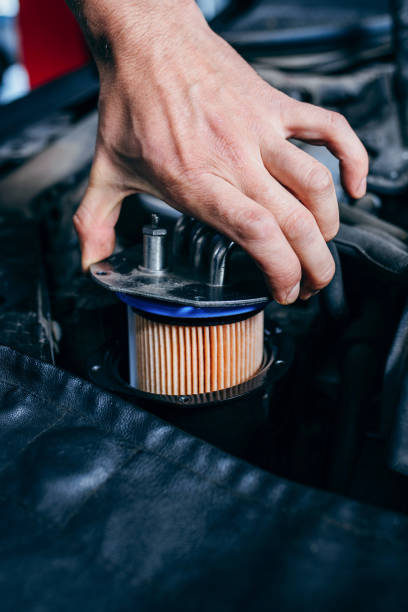May 3, 2024
How do I know if I put my air filter in right?
To ensure that you have installed your air filter correctly, follow these steps:
- Check the Direction Arrow: Most air filters have an arrow on the side indicating the direction of airflow. This arrow should point toward the furnace or air handler and away from the return duct. If you can’t find an arrow, the side with a wire mesh or cardboard frame usually faces the furnace or air handler.
- Fit the Filter Snugly: The air filter should fit snugly in the designated slot without any gaps around the edges. If there is any wiggle room, air might bypass the filter, reducing its effectiveness.
- Observe the Filter Size: Ensure that the filter size matches the specifications of your HVAC system. Filters come in various dimensions, and using the wrong size can lead to improper filtration and potential damage to your system.
- Confirm Proper Sealing: After inserting the filter, check if it is properly seated and sealed within the filter compartment. There should be no gaps or spaces for unfiltered air to pass through.
- Listen for System Performance: Once the filter is installed, turn on your HVAC system and listen for any unusual sounds. A properly installed filter should not cause any whistling or rattling noises.
- Check for Visual Indicators: If your filter has a built-in indicator, such as a color change or a digital display, confirm that it is functioning correctly after installation.
- Review the Manual: Refer to your HVAC system’s manual for specific instructions on filter installation, as different systems may have unique requirements.
By following these steps, you can ensure that your air filter is installed correctly, promoting better air quality and system efficiency.

Do different air filters matter?
Yes, different air filters do matter because they vary in efficiency, material, and purpose. Here are some key differences to consider when choosing an air filter:
- Efficiency and MERV Rating:
- MERV (Minimum Efficiency Reporting Value): This rating indicates how effectively a filter captures particles of different sizes. Higher MERV ratings (from 1 to 16) capture more and smaller particles. Residential filters typically range from MERV 6 to 12.
- HEPA (High-Efficiency Particulate Air): HEPA filters have even higher efficiency, capturing at least 99.97% of particles 0.3 microns or larger, but are usually used in specific systems designed to handle their airflow resistance.
- Material and Construction:
- Fiberglass Filters: These are inexpensive and provide basic filtration, capturing larger particles like dust and lint. They usually have lower MERV ratings (1-4).
- Pleated Filters: Made from polyester or cotton paper, these filters have a larger surface area and can capture smaller particles, offering higher MERV ratings (6-12).
- Electrostatic Filters: These filters use static electricity to attract and capture particles. They can be disposable or washable and typically have MERV ratings of 8-12.
- Activated Carbon Filters: These filters are designed to remove odors and gases but are often used in conjunction with other types of filters for particulate removal.
- Purpose and Application:
- Basic Filtration: For general use, a lower MERV rating (6-8) may suffice, primarily capturing larger particles like dust, pollen, and pet dander.
- Enhanced Filtration: For homes with allergy sufferers or where better air quality is desired, higher MERV ratings (9-12) or HEPA filters are more suitable, capturing finer particles like mold spores, smoke, and bacteria.
- Odor Control: Activated carbon filters are beneficial for removing odors and volatile organic compounds (VOCs).
- Impact on HVAC System:
- Airflow Restriction: Higher MERV-rated filters and HEPA filters can restrict airflow more than lower-rated filters. Ensure your HVAC system can handle these filters without causing strain or inefficiency.
- Maintenance: Some filters require more frequent replacement or maintenance. Consider the cost and convenience of maintaining the filter you choose.
Choosing the right air filter depends on your specific needs, such as improving indoor air quality, managing allergies, or controlling odors, and ensuring compatibility with your HVAC system.
